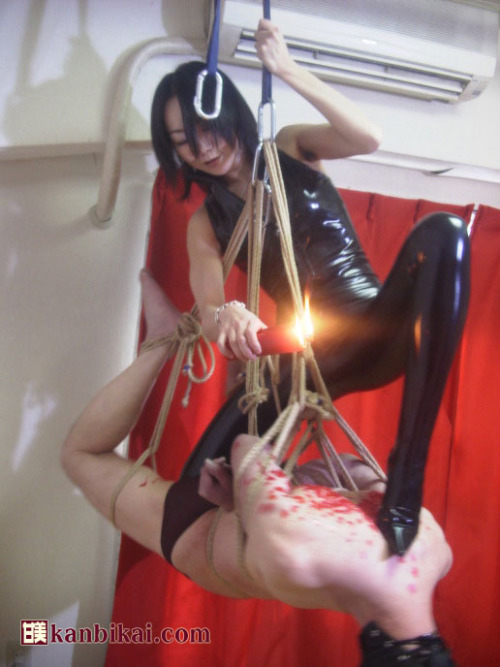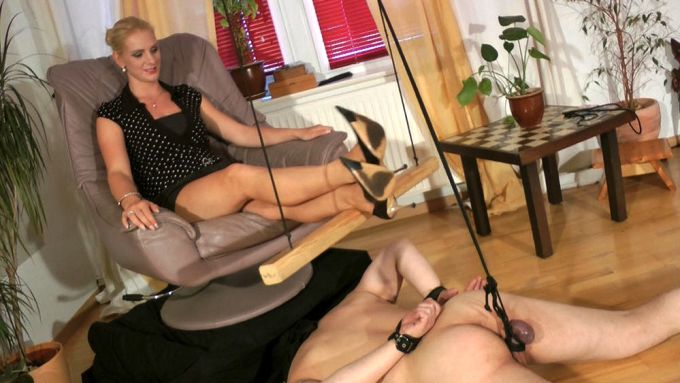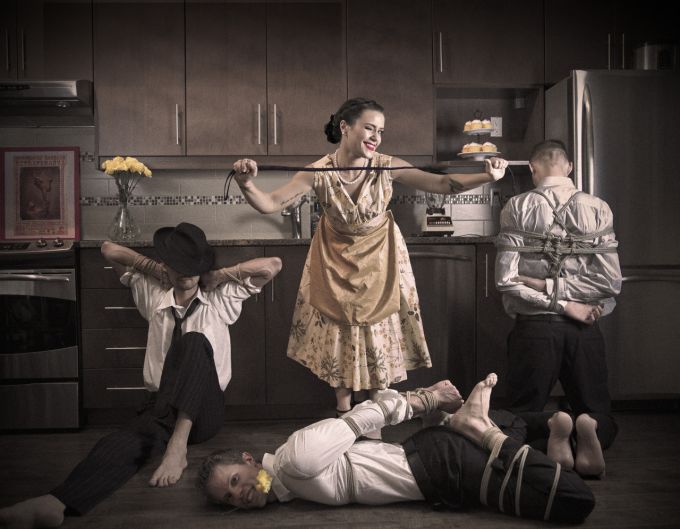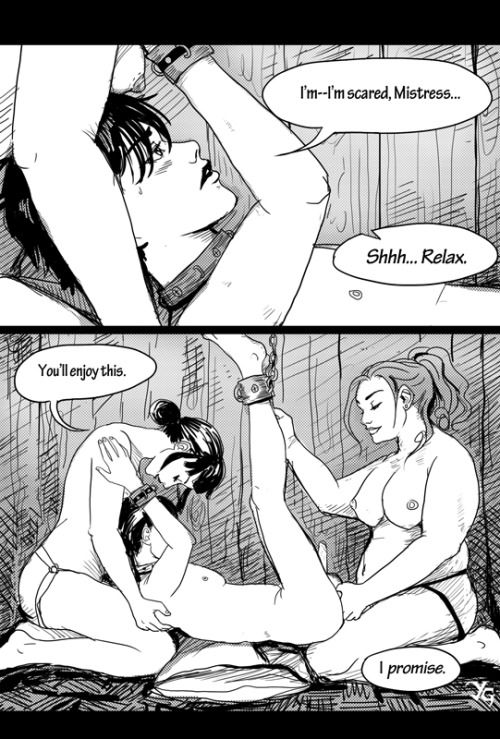I’ve enjoyed two recent posts from Mistress Sidonia – Mansels in Distress Part 1 and Part 2. In general I find that there’s a lot more fancy bondage and interesting predicaments in M/f and M/m porn than in F/m. Probably that’s due to the fact that the first two tend to focus more on the submissive, where femdom porn often puts the dominant center stage. That’s not to say there’s not plenty of bondage in femdom material, it just often seems to be a means to an end, rather than the end itself.
Whatever the reason, it’s a pity, because heavy bondage can be hot to look at and experience. I’ve had some amazing and intense experiences with mummification, heavy leather sacks and vacuum beds over the years. Where activities like corporal and piercing are often about the dynamic between me and the dominant, heavy bondage can turn me inward and create a more reflective headspace.
 Image is of Mistress Sidonia and slave from The English Mansion
Image is of Mistress Sidonia and slave from The English Mansion
 The image is from this gallery.
The image is from this gallery. This is from
This is from 
 I’m afraid I have no idea who the original artist for this was. If you can help me attribute it then please leave a comment.
I’m afraid I have no idea who the original artist for this was. If you can help me attribute it then please leave a comment. This image was sent to me by a reader – thanks Marga! It’s on a bunch of tumblr’s (for
This image was sent to me by a reader – thanks Marga! It’s on a bunch of tumblr’s (for  This is from
This is from  Image is of Mistress Sidonia and slave from
Image is of Mistress Sidonia and slave from  I found this on the
I found this on the 
 Image is by the brilliant and talented
Image is by the brilliant and talented